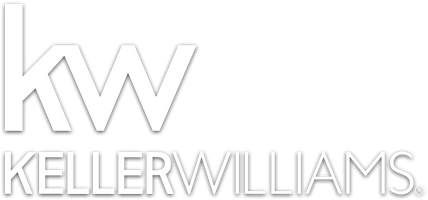
Understanding
1031
EXCHANGE



1031 EXCHANGE
The swap of one real estate investment property for another in order to defer capital gains taxes is known as a 1031 exchange. This term originates from Section 1031 of the Internal Revenue Code (IRC) and is commonly used by real estate agents, title companies, and investors. Some people even use it as a verb, saying things like "Let's 1031 that building for another."

However, the use of IRC Section 1031 involves many complex factors that real estate investors should understand before attempting it. For instance, the properties being exchanged must be like-kind, and the IRS has limitations on the use of this method for vacation properties. Additionally, there are various tax implications and time constraints that may pose challenges.
What Is Section 1031?
Generally speaking, a 1031 exchange (also referred to as a like- kind or Starker exchange) involves trading one investment property for another. While most exchanges are considered taxable transactions, if you meet the requirements of 1031, you may not owe any tax or only owe a limited amount at the time of the exchange.

Essentially, this allows you to alter the form of your investment without being viewed by the IRS as having sold or realized a capital gain, thereby enabling your investment to continue to grow tax-deferred. The good news is that there is no limit to the number of times you can do a 1031 exchange. You can keep rolling over your gain from one investment property to another, enjoying a profit on each swap, without paying tax until you sell for cash many years down the road.
1031 Exchange Timelines and Rules
“A 1031 Exchange provides investors with a great tool for deferring capital gains by transferring equity from one investment to another. Often this involves moving from a very "hands on" investment to a replacement property investment that is "hands off" with passive income.”
Kate Kragen - Commercial Realtor
When participating in a 1031 exchange, it can be challenging to find someone who has the exact property that you want and is willing to trade for the property you have. As a result, most exchanges are either delayed, three-party, or Starker exchanges, which involve the use of a qualified intermediary.
In a delayed exchange, the intermediary holds the cash from the sale of your property and uses it to purchase the replacement property on your behalf. There are two critical timing rules that you need to follow for a successful delayed exchange.
In a delayed exchange, the intermediary holds the cash from the sale of your property and uses it to purchase the replacement property on your behalf. There are two critical timing rules that you need to follow for a successful delayed exchange.

1031
Exchange Rules
The first rule is the 45-day rule, which requires you to designate a replacement property in writing to the intermediary within 45 days of selling your property. You can identify up to three potential replacement properties, and you must eventually close on at least one of them. In certain cases, you may be able to identify more than three properties if they meet specific valuation criteria.

1031
Exchange Rules
The second rule is the 180-day rule, which requires you to close on the replacement property within 180 days of selling your old property. It's essential to adhere to both timing rules to ensure that your exchange qualifies for tax deferral under the 1031 provision.
When engaging in a 1031 exchange, it's important to consider the tax implications of any cash or debt involved in the transaction. If there is any cash left over after the intermediary acquires the replacement property, this is known as boot and will be taxed as partial sales proceeds, typically as a capital gain. However, it's not just cash that can impact your tax liability.

You must also take into account any mortgage or other debt on the property you're relinquishing, as well as any debt on the replacement property. Even if you don't receive any cash back, if your liability decreases, this will still be treated as income and taxed accordingly. For example, if you had a $1million mortgage on the old property but only have a $900,000 mortgage on the new property, you'll have a $100,000 gain that will be classified as boot and subject to taxation.

“There are many strategies when considering a 1031 exchange and verifying the eligibility makes the transition very smooth. Many of my clients are even able to transition their vacation homes to be eligible.”

Teresa Fluegel -
1031 Exchange Specialist
1031 for Vacation Homes
Previously, taxpayers could use the 1031 provision to swap vacation homes and defer any recognition of gain, even if they eventually planned to use the $500,000 capital gain exclusion by making the new property their principal residence. However, in 2004,Congress closed that loophole.
Nonetheless, taxpayers can still convert vacation homes into rental properties and do 1031 exchanges by renting out the property for a period of time before exchanging it for another property. If the property is offered for rent without tenants, it would not qualify for a 1031 exchange, according to the IRS.
Moving Into a 1031 Swap Residence
Section 1031 of the tax code used to allow taxpayers to swap vacation homes or investment properties and delay recognition of any gain. Some even converted their replacement property into their principal residence and later used the $500,000 capital gain exclusion. However, in 2004, Congress tightened the rules, and now vacation homes can only be exchanged for other properties if they are converted into rental properties first.

The IRS has a safe harbor rule for this, which requires renting the property out for at least 14 days a year and not using it personally for more than 14 days or 10% of the rental period. Additionally, if you acquire property through a 1031 exchange and want to sell it as your principal residence, you must wait five years before using the capital gains tax exclusion.
How to Report 1031 Exchanges to the IRS
In addition to Form 8824, you must also report the exchange on your tax return for the year in which the exchange occurred. The IRS may also request additional documentation or information about the exchange, so it's important to keep detailed records of the transaction.
“Understanding the benefits of proactive tax planning, including 1031 exchanges, is incredibly important to helping my clients navigate their estate plans and set their families up for financial success.”
Amanda Ewing-Rice - Trust and Estate Attorney
1031 for Estate Planning
The tax liabilities of a 1031 exchange can be eliminated through proper estate planning. When you pass away, the property will receive a step-up in basis to its fair market value at the time of your death. This means that if your heirs sell the property for its current value, they won't have to pay capital gains taxes on the appreciation that occurred during your ownership, because the basis for calculating the gain will be reset to the current value at the time of your death. However, it's important to note that estate tax may still apply to the property, depending on its value and other factors.

1031 Exchange Basics

Can You Do a 1031 Exchange on a Principal Residence?
A principal residence usually does not qualify for 1031 treatment because youlive in that home and do not hold it for investment purposes. However, if yourented it out for a reasonable time period and refrained from living there, thenit becomes an investment property, which might make it eligible.

Can You Do a 1031 Exchange on a Second Home?
1031 exchanges apply to real property held for investment purposes. Therefore, a regular vacation home won’t qualify for 1031 treatment unless it is rented out and generates an income.
What Is 1031 Exchange Depreciation Recapture?
By using a 1031 exchange, real estate investors can defer paying taxes on there captured depreciation until they eventually sell the replacement property, which could be years down the line. In this way, they can continue to benefit from the depreciation deductions without facing immediate tax consequences. However, it's important to note that the depreciation recapture tax will eventually come due, either when the replacement property is sold or when it is passed on to heirs.
Conclusion
Smart real estate investors can utilize a 1031 exchange to postpone taxes and grow their wealth, but this strategy involves various intricate components that demand comprehension of regulations and expert assistance. Our team is here to walk you through the process and set you up for success!
Kathleen Kragen, MAI
KW Commercial CA DRE#00974611
925-487-8315
kkragen@kwcommercial.com
Amanda Ewing-Rice, Esq.
Attorney, Managing Partner
Atashi Rang Ewing-Rice Law Firm P.C.
(415) 398-7275
Amanda@arerlaw.com
Teresa Fluegel, CES®
Certified 1031 Exchange Specialist
Chicago Deferred ExchangeCompany
415-596-6749
teresa.fluegel@cdec1031.com
Jerilyn Mallari, EA
Tax Strategist
Mallari Tax
(707) 234-5585
mallaritax.com
jeri@mallaritax.com

Dean Powell
(925)-765-8584
DeanPowell@KW.com

